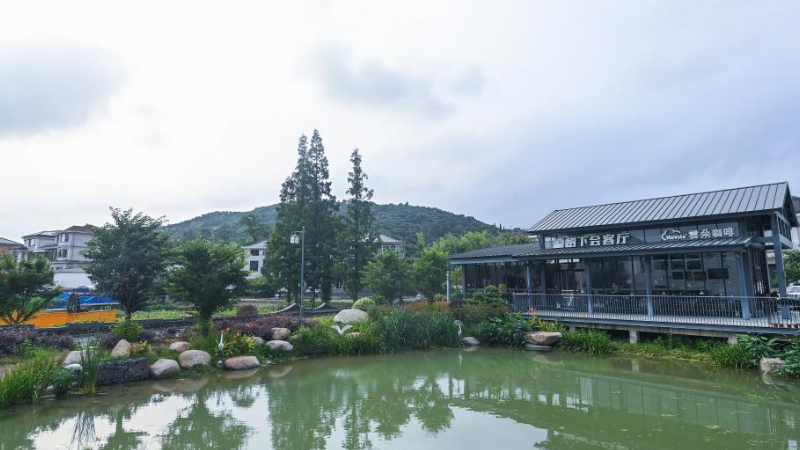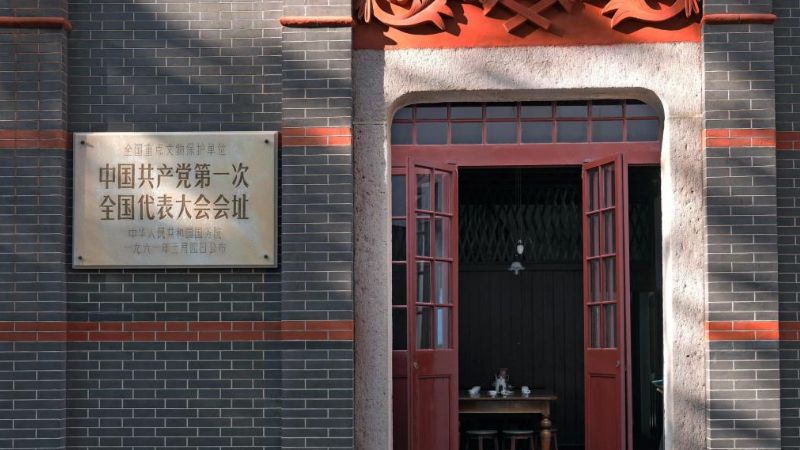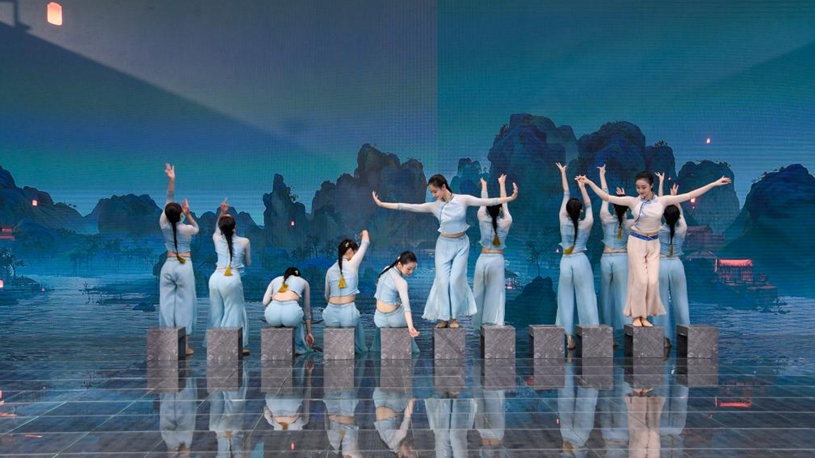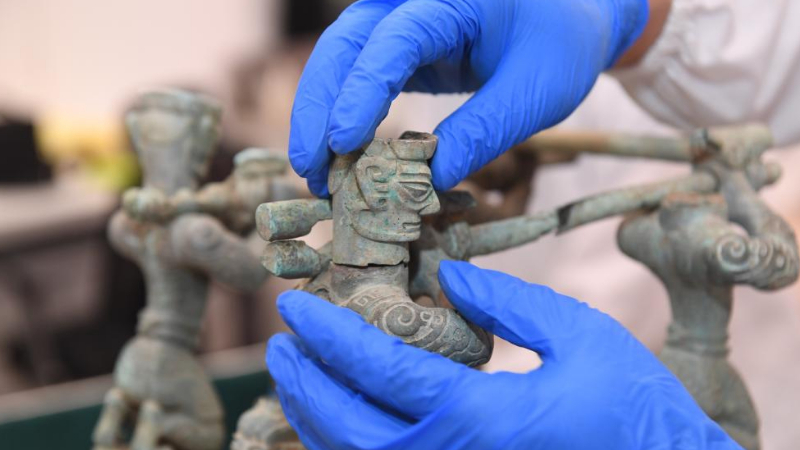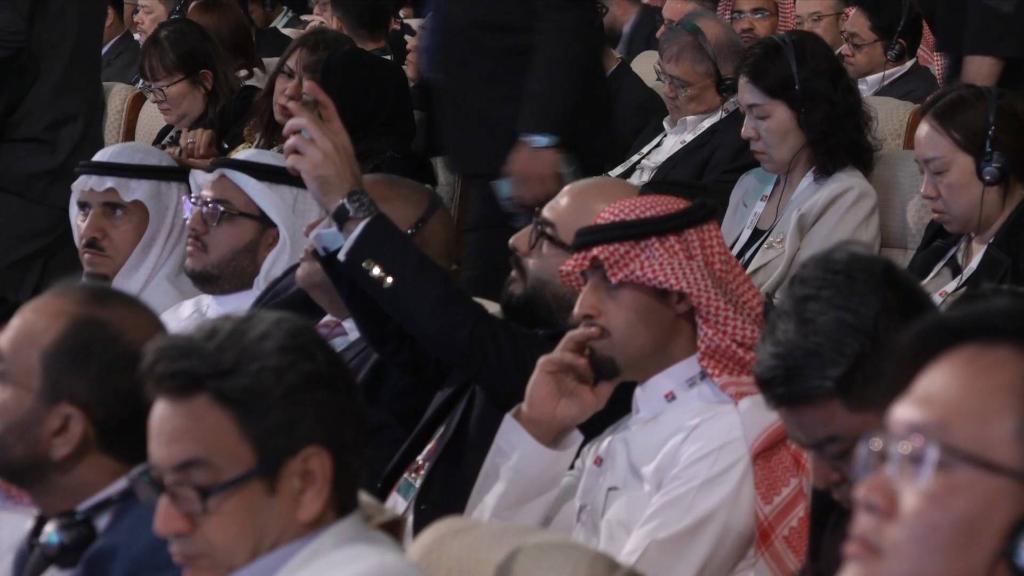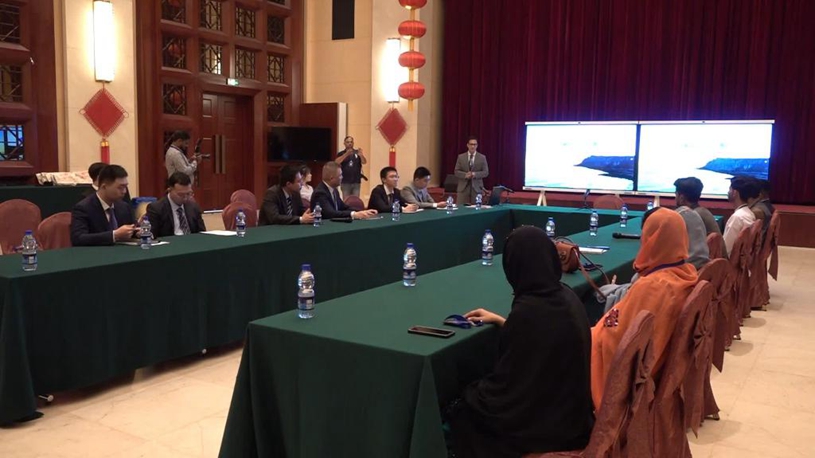
Passengers get their boarding passes checked before boarding the Flight MF883 at the Fuzhou Changle International Airport in Fuzhou, capital of southeast China's Fujian Province, May 22, 2023. (Xinhua/Lin Shanchuan)
Make no mistake. The biggest threat to peace and stability in the Taiwan Strait never comes from China, but from the interference and provocation of a superpower thousands of miles away. The Taiwan question is purely China's internal affair. The attempt to internationalize it is a loathsome cunning calculation.
by Xin Ping
The island of Taiwan is once again under international spotlight in recent months. U.S. Secretary of State Antony Blinken claimed that the Taiwan question is not just an "internal" affair for China. Soon after that, politicians from Britain, South Korea and some other U.S. allies followed suit, peddling the idea that the Taiwan question concerns the whole world. Even Switzerland, a country with a tradition of neutrality, suggested this question is "left to the free discretion of each state."
Internationalizing the Taiwan question may sound persuasive to someone not familiar with the issue. However, it could hardly stand the scrutiny of history and reality.
First and foremost, the status of Taiwan being part of China has long been affirmed by international law and is not up for debate. The Cairo Declaration, a historic document issued in November 1943 by U.S. President Franklin Roosevelt, British Prime Minister Winston Churchill, and Chiang Kai-shek of Chinese Kuomintang (KMT), clearly stated that all the territories Japan had stolen from China, such as Taiwan and the Penghu Islands, should be restored to China. These terms were reaffirmed later in the Potsdam Proclamation of 1945. Taiwan's status as an integral part of China is also reflected in Resolution 2758 of the UN General Assembly, and in bilateral documents China signed with 182 countries, which marked the establishment of their diplomatic relations.
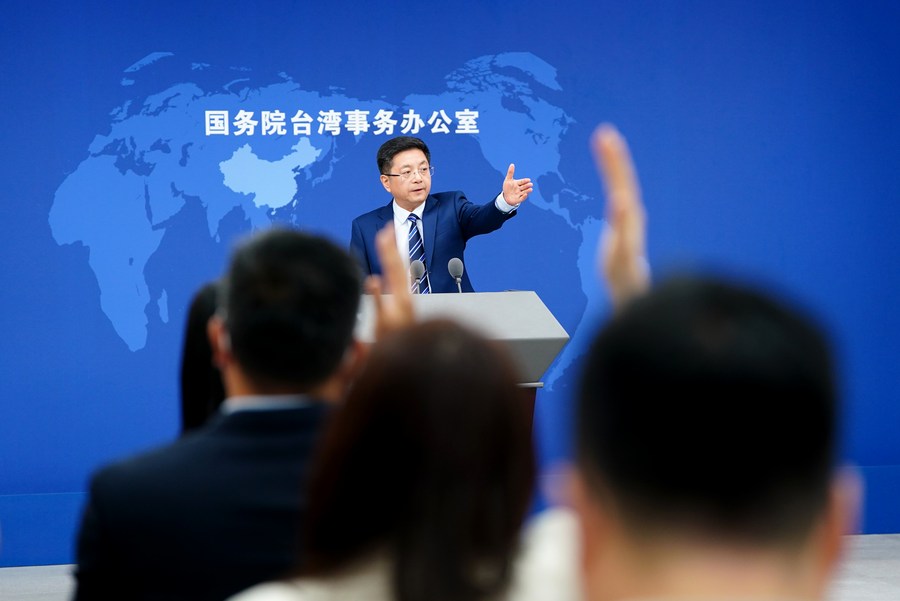
Ma Xiaoguang, spokesperson for the Taiwan Affairs Office of the State Council, gestures at a press conference in Beijing, capital of China, May 17, 2023. (Xinhua/Chen Yehua)
In fact, even after KMT's defeat in the Chinese Civil War and retreat to the island of Taiwan in the late 1940s, its Generalissimo Chiang Kai-shek had never supported the idea of "two Chinas."
Today, the Taiwan Strait is one of the busiest shipping routes in the world. A large amount of commercial traffic passes through the Strait every day, as Blinken once noted. But what he did not mention, whether intentionally or unintentionally, is that there has been no complaint from any captain of any commercial vessel about not being able to sail through the Taiwan Strait. The truth is, there has not been any problem for vessels and aircraft to go through the Taiwan Strait, as long as they observe international law and respect China's sovereignty.
Then why is the United States so obsessed with diverting international attention to this island? Why does the United States keep stoking tension between the island and the mainland? The answer is quite simple: to seek selfish gain.
Selling weapons to the island is a very lucrative business for the United States. Since 2015, the U.S. government has sold more than 23.6 billion U.S. dollars of arms, in over 40 batches, to Taiwan. In less than two years since taking office, the Biden administration approved nine arms sales to Taiwan. Money from taxpayers on the island flooded into the pockets of U.S. arms dealers.

A child holds an anti-war sign during a rally at Times Square in New York, the United States, Jan. 14, 2023. (Photo by Ziyu Julian Zhu/Xinhua)
Although the United States pledged on Aug. 17, 1982, in a joint communique with China that it "does not seek to carry out a long-term policy of arms sales to Taiwan" and "intends gradually to reduce its sale of arms to Taiwan," U.S. arms dealers never turned away from this lucrative business. Unsurprisingly, the more tense the situation in the Taiwan Strait is portrayed by America, the more willing authorities in Taiwan are to shell out taxpayers' money for U.S. weapons, and the more profits U.S. arms dealers could make.
In the context of the ongoing Ukraine crisis, the United States aims to exploit people's fears of more flames of war with its latest narrative on Taiwan, and let NATO sneak its way into the Asia-Pacific region. "War is not inevitable ... Nevertheless, we do not have the luxury of time," Adm. John Aquilino, commander of U.S. Indo-Pacific Command, claimed in his recent remarks about a potential U.S.-China conflict over Taiwan. In February this year, U.S. military gained access to four more Philippine bases close to Taiwan and the South China Sea, widely seen as a calculated move to encircle China in the Asia Pacific.
At the same time, the United States sheds crocodile tears for "the tiny island of Taiwan bravely standing up to threats from the mainland" and attempts to depict China as "that one aggressive kid in the class," so it could muddy the waters in the Taiwan Strait and use so-called "defense of Taiwan" as a pretext to form groupings that target China and promote global disengagement from China. Its ultimate goal is to contain China's development and perpetuate U.S. hegemony.
Make no mistake. The biggest threat to peace and stability in the Taiwan Strait never comes from China, but from the interference and provocation of a superpower thousands of miles away. The Taiwan question is purely China's internal affair. The attempt to internationalize it is a loathsome cunning calculation.
Editor's note: The author is a commentator on international affairs, writing regularly for Global Times, China Daily, Xinhua news, CGTN, etc. He can be reached at xinping604@gmail.com.
The views expressed in this article are those of the author and do not necessarily reflect the positions of Xinhua News Agency.■

